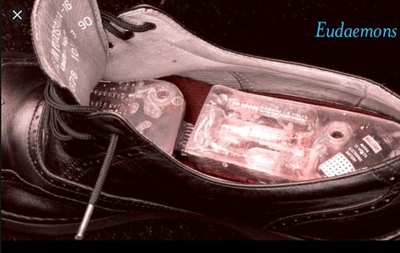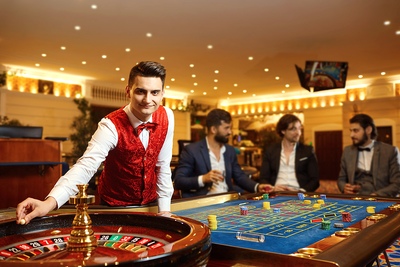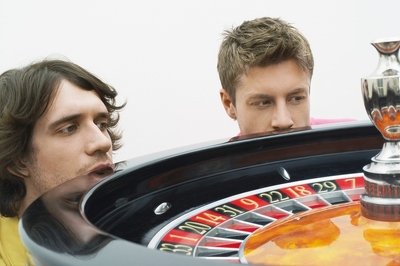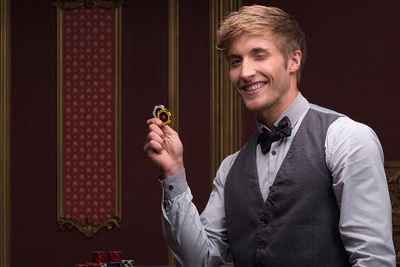
What is your first thought when you picture a casino? For many people, it is the roulette wheel. Millions upon millions of people have chanced their luck on the spin of the wheel in casinos for hundreds of years, whilst roulette has maintained and even grown its popularity in more recent years with the advent of online casinos.
Unlike some other casino games, roulette is a game entirely of chance and as such it is impossible to improve at roulette. Human nature is such that some, however, have tried to tilt the scales in their favour by cheating. Some of the methods of cheating used are very technical and require the cheater to be highly skilled, others less so.
Different approaches have also varied in terms of their efficacy but all of them are either breaking the law, the rules of the casino or both. In this article, we go through the different ways that people have tried to find an advantage in this game of luck.
Cheating From The Off

As said, roulette is one of the most famous and iconic casino games there is and it is also one of the oldest. Attempts to cheat the game are almost as old as the wheel itself and two of the most famous names in this regard are Charles Wells and Joseph Jagger. Both men operated at the end of the 19th century but in truth not a huge amount is known about their exploits aside from the headline stuff.
The story of Jagger is told in Anne Fletcher’s 2018 book, From the Mill to Monte Carlo: The Working-Class Englishman Who Beat the Monaco Casino and Changed Gambling Forever. Jagger was an engineer from Yorkshire who spotted imperfections in wheels that led to bias. He is one of few people listed as having “broken the bank” at the famous Monte Carlo Casino. He reportedly won two million Francs in 1873.
A couple of decades later Charles Wells was another to break the bank (in real terms this means to win more than the table’s cash reserves), doing so at the same casino in 1891. His feats inspired the music hall song “The Man Who Broke the Bank at Monte Carlo” but little is really known about how exactly he cheated the game.
According to some reports he turned £4,000 (equivalent to about £400,000 now) into more than 10 times as much. He played long hours at the roulette wheel and won 23 times from 30 spins at one stage.
Wells claims the wins were down to an infallible system, although at other times said it was pure luck. It seems impossible that such a run was mere luck, and we know that no successful system exists for roulette. Given what we know about him – he was a serial con man who served time in prison and carried out a huge number of scams and frauds – almost all experts agree that Wells must have cheated. But how?
The most likely method was that Wells was playing at wheels that were not as random as they should be. As with Jagger, we suspect that he was able to spot wheels that displayed bias to certain numbers or areas. A biography of Wells, The Man Who Broke The Bank At Monte Carlo by Robin Quinn, posits the idea that this may well have been done with the help of the house, in particular Camille Blanc.
Blanc was the director of the casino at a time when it was struggling, having taken over from his father, Francois, who had been given exclusive rights to run the casino in 1863. The new ruler of Monaco, Prince Albert, objected to gambling and under new regulations the casino was struggling. Did Blanc facilitate, or turn a blind eye to Wells’s wins? It is certainly feasible that he took a cut of the gains and also benefited hugely from the masses of publicity the story generated.
Perhaps we will never know quite how Wells cheated but we can be almost certain that he did and absolutely sure that he won the equivalent of around £4m!
Mechanical Help
Artificial intelligence used to be confined to science fiction but it is increasingly a part of our lives now, permeating even the world of gambling. Betting companies use all sorts of algorithms and AI programmes to help them out, be that in how to price up the odds in sport, how to maximise spend in a casino or how to keep people playing at an online slot. Similarly, punters have turned to technology in their quest to ensure victory in casinos, including on the roulette wheel.
The Banning of Stopwatches
 The history of the roulette wheel goes back a long way, to the 17th century in fact.
The history of the roulette wheel goes back a long way, to the 17th century in fact.
Roulette was the offshoot of an attempt by French inventor and mathematician, Blaise Pascal, to create a perpetual motion machine.
That failed, but ever since, people have been trying to predict when the motion of the ball would end.
Scott Lang, a self-styled gambling expert, used his knowledge of momentum and mathematics to come up with a system that could predict the outcome of the spin of a roulette wheel with the use of a stopwatch.
His system was by no means assured to work but it troubled casino operators enough for them to place a ban on stopwatches on the casino floor.
Lasers, Computers and the Ritz
 In 2004, a three-person gang took the basic principles of Lang’s idea to a whole new level. Two men and a woman won £1.3 million in two visits to the Ritz in London, armed with a device which predicted the area in which the roulette ball would stop by using a laser attached to a mobile phone to measure the speed of the rotation before relaying that information to a display. The trick was then in placing their chips as quickly as possible before the dealer called last bets.
In 2004, a three-person gang took the basic principles of Lang’s idea to a whole new level. Two men and a woman won £1.3 million in two visits to the Ritz in London, armed with a device which predicted the area in which the roulette ball would stop by using a laser attached to a mobile phone to measure the speed of the rotation before relaying that information to a display. The trick was then in placing their chips as quickly as possible before the dealer called last bets.
On their first visit, the gang left with £100,000 and apparently didn’t arouse any suspicion. That all changed on their second visit when staff at the Ritz reviewed CCTV footage which is part of the routine for any big win. It was then that they spotted something fishy before notifying the police, who found stacks of cash and the offending piece of kit in a hotel room. The three were investigated but ultimately, no evidence of illegal activity could be found so they were allowed to keep their winnings.
The incident helped to provoke a change in gambling laws to ensure they kept up with the times. However, as is often the case in such scenarios, it also provided inspiration for others to try to utilise technology to employ so-called ‘sector targeting’, which predicts the area of the wheel in which the ball will stop.
The Eudaemons

The Ritz gang were far from the first group to attempt to use technology to beat the casinos. Back in the 1970s a group of physics students who called themselves the Eudaemons (the name comes from Greek mythology and means good demons) bought a roulette wheel and spent hours analysing it with an oscilloscope and video cameras. They used their findings and mathematical background to come up with a formula which could predict the outcome of a spin with reasonable accuracy.
Since the formula was very complicated, the group realised they would need to create a computer to carry it out in real time. Eventually, they created a system which included a small computer concealed in a shoe. Teams of two would head to the roulette table with one inputting information by tapping their toe and the other receiving the output which came in the form of nine options – eight sectors on which to bet or the option of making no bet. The observer would stand watching the table while the accomplice would actually place the bets.
Incredibly, the system produced a return of 44 cents on the dollar but the group never got beyond $10,000 in total earnings as they were beset with problems, including electric shocks and severe burns from malfunctioning units. Still, the Eudaemons have gone down in gambling folklore and their story has been retold a few times on TV.
A Scammers’ Paradise
 Casinos are always on the lookout for players they believe are trying to tilt the odds in their favour, especially with concealed computers and devices.
Casinos are always on the lookout for players they believe are trying to tilt the odds in their favour, especially with concealed computers and devices.
The lure of beating the system and walking away with a huge win remains big enough for people to buy all sorts of devices which purport to be able to predict roulette spins. No such device available for general sale has been proven to work. If they did, then the scammers who sell them would use them in casinos instead of making their money selling the devices.
The same warning applies to websites which claim to have crafted strategies to exploit supposed software glitches or bugs to beat online casinos. Whether offered for free or for a fee, these strategies should come with an almighty health warning as they simply don’t work. Indeed, many proclaimed “roulette systems” are often little more than Martingale (which we discuss elsewhere on site) repackaged in one form or another.
Biases and Sleight of Hand
Whilst casinos continue to deal with increasingly high tech attempts to beat the roulette wheel, others take a much simpler approach. These people reason that it is possible to gain an edge by taking note of the intrinsic biases of individual roulette wheels and tables. Others have reasoned that the only real weakness to exploit is that of human behaviour and greed.
After Timing on a Grand Scale
 If you’ve spent much time on social media and have an interest in gambling you’ll no doubt have run into after timing. This is when a punter will claim (sometimes legitimately, sometimes not) to have won big at the bookies.
If you’ve spent much time on social media and have an interest in gambling you’ll no doubt have run into after timing. This is when a punter will claim (sometimes legitimately, sometimes not) to have won big at the bookies.
Many people dislike this when information about the bet is only relayed after it has won, for example a poster claiming they backed 4-0 but only doing so after the final whistle, rather than making their bet public beforehand. It’s a harmless phenomenon which exists only to boost the ego of the poster but a very different kind of after timing has been a threat to casinos for some time.
Seasoned casino attendees know that the roulette table is usually the first job for a croupier. This presents an opportunity for players practised at sleight of hand and with mal intent. Although it is extremely difficult, some have been known to win big at the roulette table by swapping lower value chips for higher value ones.
Garcia Pelayo and Wheel Bias
 Modern roulette wheels are incredibly well-engineered, expensive pieces of equipment. They are not, however, perfect. Just like a snooker player who understands the roll of a particular table, roulette players often try to work out whether there is any bias on the wheel they are betting on.
Modern roulette wheels are incredibly well-engineered, expensive pieces of equipment. They are not, however, perfect. Just like a snooker player who understands the roll of a particular table, roulette players often try to work out whether there is any bias on the wheel they are betting on.
The best known example of this is Garcia Pelayo. He would spend hour upon hour in the Casino Gran Madrid in the 1990s, recording the results and spins of the wheels. He then analysed the results before returning to the casino to with his family in tow to play on a select number of wheels in which the analysis suggested there was a strong bias.
His story and its success was so intoxicating that it became a film called Winning Streak, released in 2012.
Richard Marcus and Exploiting Human Weakness
 Casinos invest a vast amount of their money on security. That takes all manner of different forms, including staff training. We’ve already seen that staff who take their eye off the ball can be costly if players are able to change their bets but staff who can be corrupted are even more of a threat.
Casinos invest a vast amount of their money on security. That takes all manner of different forms, including staff training. We’ve already seen that staff who take their eye off the ball can be costly if players are able to change their bets but staff who can be corrupted are even more of a threat.
It certainly lacks the craft and ingenuity of creating a computer and programme to predict the spin of a roulette wheel but many potential casino cheats have tried to exploit the greed of casino employees by bribing them to pay out losing bets as winners.
Bribery and outright cheating – the simplest methods are often the most effective.
Most people involved in such behaviour would keep an understandably low profile but not Richard Marcus. He is happy to share the tricks and cons that he has played over the years on his blog.
Some of his strategies involve bamboozling casino workers, others use stunts and props and many of them require an accomplice (or accomplices) both on the inside (usually the dealer or croupier) and who play the role of other bettors to try and control the dealer’s movements and attention.
